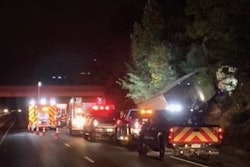
Voting for our elected officials is arguably one of the most important rights we have as Americans, but participating in elections can be difficult when you’re out on the road and away from home for days or weeks at a time. Despite many positive changes in voting over the more than two-hundred-year history of our nation, one aspect remains relatively unchanged: in order to vote, you are generally expected to travel to a designated physical polling location in your home state.
Thankfully, allowances have been made for voters that work away from home, serve in the military, or are otherwise unable to travel to polling locations on the day of elections. What complicates this, however, is that voting is administered by the individual states rather than the federal government. That means there’s a lot of differences in procedures and cut off dates depending on where you live, so always check with your state and/or county’s election board to make sure you’re following all the requirements to make your vote count. This is important even if you’ve voted early or by absentee ballot before, as some states have changed or eliminated certain requirements because of the coronavirus pandemic.
Absentee voting
All states offer mail-in or absentee ballots for the general election. In fact, in light of COVID-19 concerns, most or all voters in 10 states and the District of Columbia will automatically receive ballots in the mail this year. Other states allow absentee ballots to be requested online, by mail, or in person. While some states’ mail-in request dates may have already passed, they still typically allow absentee ballots to be requested in person up until only one or two business days before the election. More than half the country’s states require no excuse for voting via absentee ballot, but even in those that do, expecting to be outside your voting district for the entire voting period is an acceptable excuse. (In fact, for the 2020 election, all but five states will accept concern over catching the coronavirus at the polls as all the excuse you need.)
Check the requirements on the ballot, as it will state when and how the ballot must be returned (either postmarked or received in person). You may also be required to confirm your identity when mailing an absentee ballot by having the ballot notarized, signed by a witness, or by including a copy of your photo ID.
Early voting
Most states offer early in-person voting as a way to accommodate voters who travel for work, work unusual hours, or have health concerns. The way this looks differs from state to state, and as mentioned before, in some states COVID-19 concerns have changed procedures from years past. (For example, some of the states that sent absentee ballots to all registered voters have chosen not to have in-person early voting this year.) Some allow voters to arrive at their typical voting location and cast their vote a few days or even weeks early. Other states offer what is known as “in-person absentee” voting, where the voter goes to their local election board location and fills out an absentee ballot in person.
Provisional ballots
If you’re in your home state on election day but can’t make it to your assigned poll before it closes, a few states will allow you to cast a provisional ballot outside your voting precinct. These ballots are called provisional because they are only counted if it can be proven through the voter rolls and your ID that you were actually registered to vote at the time and hadn’t already voted elsewhere. Also, some states, like Maine, only bother counting provisional ballots if they could possibly affect the outcome of the election.
In-person voting
All but two states (Oregon and Washington) will offer in-person voting for the 2020 election. It is important to remember that most states will only allow you to vote in person at the specific polling plate assigned to you. Keep in mind though that polls typically open early and close late—some locations may open as early as 5 a.m. or close as late as 9 p.m.
If you are one of the few drivers paid by the hour and working a local route, you may fall under a set of laws in 30 states that requires employers to provide time off to their employees so they can go vote. In many of those states, it is even required that they pay you for that time off.
Every state is different, so if you don’t think you can make it to the polls on Nov. 3, do some quick research and see what options are available to you before counting yourself and your vote out. Two helpful resources are vote.org and usvotefoundation.org.











